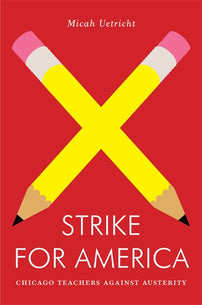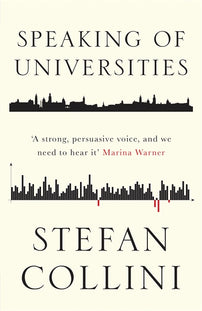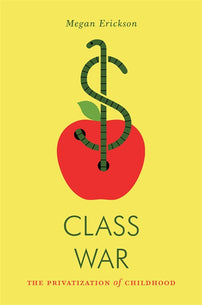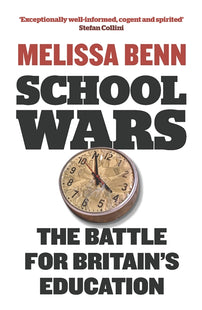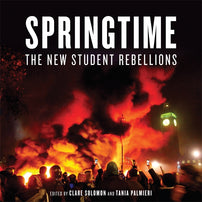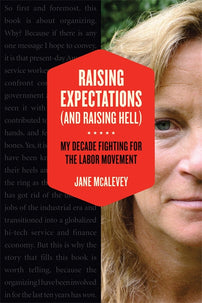All Out to the School Strike
Oklahoma teachers have become the fifth body of school employees to walk out in the past two weeks, adding to fresh picket lines in West Virginia, Toronto, Illinois, and the UK.
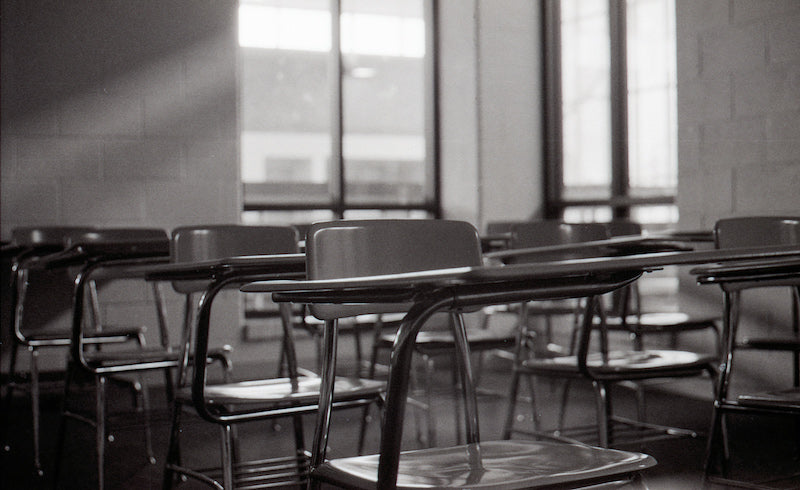
First published at From the River to the Sea.
Oklahoma teachers announced yesterday that they will strike. They become the fifth body of school employees to walk out in the past two weeks, adding to fresh picket lines in West Virginia, Toronto, Illinois, and the UK.
The issues uniting these education workers across borders are broadly similar: wages, healthcare, pensions, class size, and funding. In the past decade especially, education unions have moved closer, more self-consciously into the political vortex of neoliberal policies — both bearing the brunt of them and challenging them. Graduate student organizing has been one of the bright spots of union organizing in the U.S., and one of the contributing factors to a small stabilization of union membership in the United States.
National walkouts are also now planned for the end of March and April called by students fighting for safe schools. Walkouts, to be clear, even if passively supported by administrators, are strikes. Those already on the picket line are on strike against state legislatures or public universities. Public sector education strikes are by their very nature political strikes.
These present struggles were foreshadowed by the Chicago teachers strike of 2012, and the less known April 1, 2016, when the union struck primarily over issues that were outside the legally sanctioned parameters of collective bargaining. To recall the 2012 strike: the Union challenged the privatization of public education through chartering, the reallocation of tax base to support privatization, and schools closings in predominantly poor, Latinx, and African-American neighborhoods — a process the Union described as “educational apartheid” along lines of both race and class. The CTU strike was "social justice" unionism against the 1 percent.
This current spate of protest is also a ripple effect — or second wave — of dissident response to austerity education globally. In 2010, for example, widespread U.K student street protests against implementation of new tuition and fees resulted in numerous arrests and draconian punishment for protesters. Last year, a sequel to those protests took place in London. In South Africa, meanwhile, students successfully shut down several campuses in protest of nearly exactly the same imposition of new University fees. The consistent widening out by protesters to oppose the University as symbol of global class inequality was put this way by The Guardian in describing the South African protests:
Universities have become the focus of anger about broader inequalities that endure in South Africa more than two decades after the end of apartheid. South Africa remains one of the most unequal societies in the world, with new research showing 10% of the population owning at least 90–95% of all assets.
It is also important to recall that one reason schools have become flash points for class struggle is because they were singled out. The decimation of private sector unions in the first wave of neoliberalism left public sector unions as disproportionately unionized: for the ruling class, they became the last nail in the plank of the destruction of workers’ rights (indeed Right-to-Work laws in states like Wisconsin and Indiana began with efforts to remove collective bargaining from teachers).
Now that we know this, what role should the reborn socialist movement in the United States learn from recent events? In Jacobin, Kevin Prosen concluded:
West Virginia bears lessons for America’s burgeoning young left as well. Long isolated from the working class, socialists now have the greatest opportunity in a generation to close this historic rift. With the stabilizing institutions of the union movement being dismantled, we are likely headed for a period of renewed volatility in the labor movement; in fact, one has arguably already begun. A socialist movement previously confined to student milieus or eccentric corners of the internet can no longer be satisfied with passively studying labor history or showing up to support strikes organized by others. There is a world of difference between being merely interested in the labor movement and being implanted in it.
Even the New York Times editorial board has recognized that the political situation has changed: “we can hope, these [West Virginia] teachers can provide workers throughout the country with a powerful lesson.”
We argue that these teacher strikes should widen our horizons and raise our expectations. Instead of trying to squeeze the strike through the pin holes of existing perspectives and expectations, the strike should challenge them.
More specifically, the Left must freshly recognize the public school as a key nodal point in labor organizing, "bread and butter" economics, union agitation, growth and organizing, and incipient class struggle. Students and teachers typically drawn to Socialist politics in recent years around struggles over racism and racial violence (Black Lives Matter, police shootings); LGBTQ political struggles, gender, social reproduction and reproductive justice (nearly 75 percent of striking West Virginia teachers are women), and most recently, antifascism (the Campus Antifascist Network) are now also centering workplace justice, economic inequality and the battle to sustain and reproduce life itself.
As social reproduction theorists like Tithi Bhattacharya and others have argued, the challenge and task of the Left now is to demonstrate the intersection and interdependence of these struggles: to see the site of public education as equally central to our challenge to capitalism as the traditional shop floor. “All out to the school strike” should become a leading salvo into this widening scene of contestation.
[book-strip index="1" style="display"]